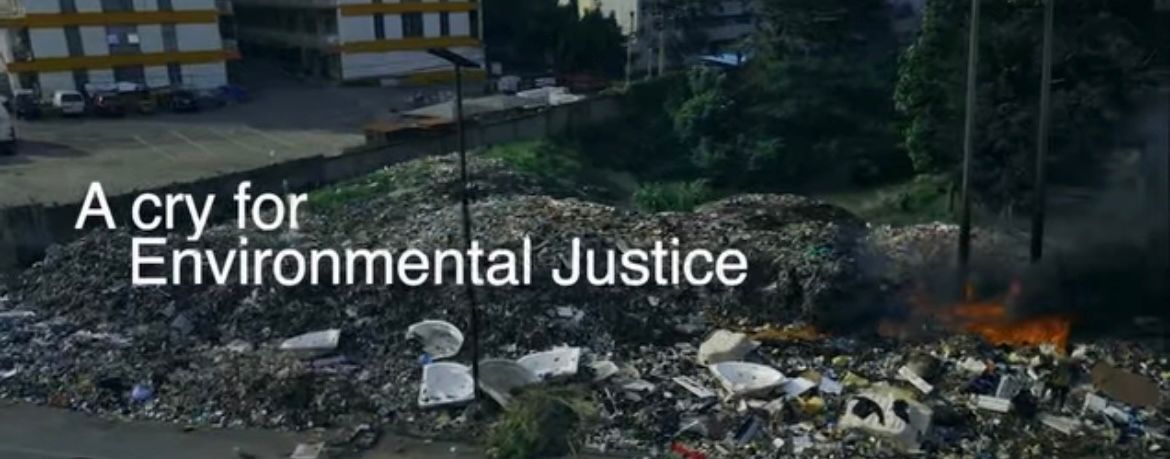NEWS
October 24, 2025

IN BRIEF
Across Nigeria today, piles of uncollected waste have become a familiar sight; around market corners, blocking drainages, and spreading in open fields. A 2025 report shows that Nigeria generates about 32 million tons of waste each year, one of the highest in Africa. However, only 20 to 30% gets collected. It also generates 1.5 million tons of plastic waste, with less than 10% recycled. From Lagos to Abuja, Port Harcourt to Kano, besides being an eyesore, the waste crisis is [...]
SHARE
Across Nigeria today, piles of uncollected waste have become a familiar sight; around market corners, blocking drainages, and spreading in open fields. A 2025 report shows that Nigeria generates about 32 million tons of waste each year, one of the highest in Africa. However, only 20 to 30% gets collected. It also generates 1.5 million tons of plastic waste, with less than 10% recycled. From Lagos to Abuja, Port Harcourt to Kano, besides being an eyesore, the waste crisis is a full-blown public health emergency threatening the wellbeing of Nigerians. Waste ends up in open dumpsites, drainage, or is burnt in the open air, releasing toxic fumes that pollute the atmosphere and contaminate groundwater. The consequences are severe. Cholera outbreaks, malaria, respiratory infections, and other preventable diseases thrive in communities where waste management is poor or nonexistent. The World Economic Forum’s 2024 commentary cites nearly 9 million deaths a year due to ambient air pollution.
In the Federal Capital Territory, the Abuja Environmental Protection Board (AEPB) spends approximately N6 billion annually on waste management, while the Satellite Towns Development Department (STDD) allocates about N2 billion, bringing the total to N8 billion each year. In the 2025 budget, the National Assembly approved a total of N1.81 trillion for the year for the Federal Capital Territory Administration (FCTA) with allocations earmarked for infrastructure and urban services including sanitation and waste management. For the 2025 fiscal cycle, the FCTA specifically earmarked N2.6 billion for waste management, erosion control, and related projects across the territory. These figures highlight the significant funding directed at waste management in the FCT even as agencies like AEPB, Abuja Municipal Area Council (AMAC) and FCTA have repeatedly lamented the scale of the problem – pointing to insufficient funding and weak citizen cooperation. Even in relatively well-planned areas like Gwarinpa and Jabi, waste dumpsites obstruct roads and markets, posing serious health and environmental risks.
Government agencies like the AEPB, AMAC, STDD, FCTA, and the Ministry of Environment – constitutionally mandated to handle waste collection and sanitation- often fall short in effectively carrying out the responsibilities they have been assigned. Even when they intervene in some areas, the work is often poorly executed or left incomplete, leaving communities to deal with unattended waste and recurring sanitation issues. Meanwhile, citizens continue to dispose of waste indiscriminately, with little understanding of how their habits directly affect community health. The story is the same across many parts of Nigeria; weak enforcement has turned waste into a recurring hazard rather than a managed resource.
This crisis is not inevitable. Waste management sits at the intersection of governance, infrastructure, and citizen responsibility. The first step toward change is accountability. Regulatory bodies responsible for enforcement such as AEPB, AMAC, STDD, FCTA, and the Ministry of Environment must not only be funded adequately but also held to performance standards that citizens can track. Public budgets for waste management should be transparent and tied to measurable outcomes such as frequency of clean-ups, number of operational trucks, or reduction in dumpsites. These agencies must also publish a clear and accessible clean-up schedule which should outline designated days and areas for waste collection and street cleaning. Making this information public on their websites, through community notice boards, radio announcements, and social media, will help communities plan accordingly, monitor performance, and hold the responsible agencies accountable for timely and consistent sanitation activities. Equally important is citizen education, helping people understand that waste management is a shared responsibility, not a government function alone.
Beyond waste collection, Nigeria needs to rethink its entire waste economy. In many countries such as South Africa, Japan, and Rwanda, waste is viewed as a resource, an input for recycling, composting, and energy production. With the right policies, waste can create jobs for youth and women through recycling cooperatives, plastic recovery ventures, and small-scale businesses. The private sector should be incentivized to invest in sustainable waste solutions, while state governments can provide the enabling infrastructure and policy environment. Public health must remain at the core of these efforts.
As Nigeria grapples with economic and social challenges, we cannot afford to overlook the silent epidemic of poor sanitation. Clean environments save lives and improve productivity. To ignore waste is to ignore public health. It’s time we saw waste management not as a mundane administrative duty, but as an urgent public health priority, one that requires the collective will of government, private sector, and citizens alike.
